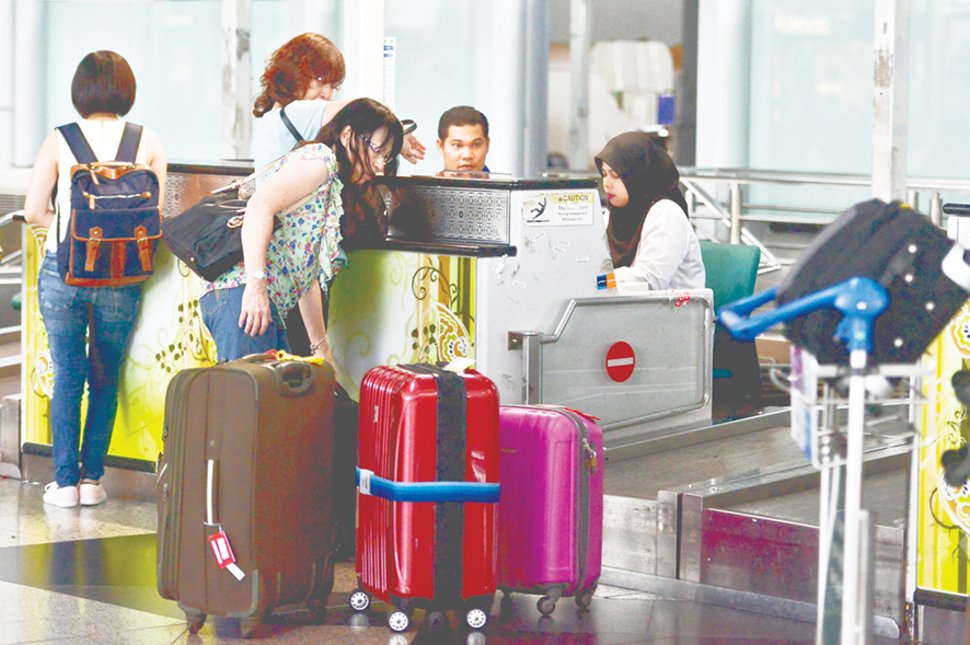20 August 2019
THE move to review both the passenger services charges (PSC) and departure levy may be seen as a boon at large, however, some analysts and industry experts are dubious about it.

Maybank Kim Eng analyst Mohsin Aziz believes that an intention to review the departure levy just 11 days away from implementation is not a good move.
“Honestly, just 11 days prior to its (departure levy) start date, and the government wants to review again? The confusion or U-turns are never good for anyone,” he told The Malaysian Reserve (TMR) when contacted recently.
Last Friday, Prime Minister (PM) Tun Dr Mahathir Mohamad had said that the federal government will relook into the PSC structure which is deemed unfair by many as tourists are charged the same for using both low-cost and premium airline.
The PSC will come into effect starting Sept 1.
It is charged by the government and is collected by airlines such as AirAsia Group Bhd on behalf of the airport operator.
As for the departure levy that would be implemented starting Sept 1, Dr Mahathir said the possibility of postponing it to after Visit Malaysia 2020 will also be reviewed.
However, should the government backtrack its decision to review the tax structure, Mohsin reckoned it will not impact the number of tourist arrivals into the country.
“I don’t think it would impact much this year, people who want to come would have decided and made the arrangement,” he added.
On the contrary, the Malaysian Association of Tour and Travel Agents (Matta) president Datuk Tan Kok Liang said if the departure levy is implemented on Sept 1, it is expected to have a negative impact on foreign tourist arrivals.
“One of the many industry concerns is the increase of airport tax and the rates unreasonably standardised across all airports in the country from Jan 1, 2018, regardless of their size, service level or class of travel. But such practice goes against the grain of fair pricing, which should be the cornerstone of every business or industry,” he said in a statement yesterday.
The departure levy for outbound air travellers, which has become a bone of contention between the government and airlines since it was proposed in Budget 2019, will be implemented next month.
According to the Departure Levy (Rate of Departure Levy) Order 2019, anyone leaving Malaysia for Asean countries will be charged RM8 for flights in the economy class and RM50 for other classes.
For flights to countries outside Asean, Malaysians travelling in the economy class will be charged RM20 while those in other classes will have to fork out RM150.
The PSC on the other hand was imposed since July last year, whereby Malaysia Airports Holdings Bhd (MAHB) has been charging RM73 on passengers using Kuala Lumpur International Airport 2 (klia2) to destinations beyond Asean, the same rate as at the full-service KLIA terminal and RM23 higher than the previous rate of RM50.
Tan noted that MATTA welcomes the announcement made by Dr Mahathir that the government is studying to impose a different level of charges for different airports, taking into consideration their size, cost and fare, and is also looking into the departure levy.
“We concur with our PM that not all passengers are the same and should not be made to pay the same airport tax. This is certainly the new government that we want, the one that listens to the people,” he said, adding that by deferring the departure levy, stakeholders can be properly engaged to find the most pragmatic solutions for the way ahead.”
Tan also noted that with the existence of departure levy, foreign tourists would be taxed twice and as for now, they are being imposed with a tourism tax of RM10 per room night.
According to MATTA, for the first five months of this year, the arrivals rose by 4.8% when 8.8% is needed to reach the 28.1 million target for 2019.
“At this rate, we will end up with 26.3 million and lower if the departure levy is implemented.
“If so, we have once again failed to achieve the targeted number of tourist arrivals since 2013, for the seventh consecutive year,” he added.
Additionally, MIDF Research aviation analyst Adam Mohamed Rahim also claimed that the latest proposal to relook into the PSC for low-cost carriers (LCCs) is something positive not just for local LCCs such as AirAsia Group Bhd and AirAsia X Bhd but also for internationals flying to Kuala Lumpur International Airport 2 (klia2) such as Indonesia’s Citilink and India’s IndiGo airlines.
“The upcoming Regulated Asset Base framework slated for implementation in January 2020 will see rates to be different for airports based on the capital expenditure and level of services and facilities offered to passengers and airlines.
“Having said that, there is so far no differentiation in PSC between passengers for LCCs and full service carriers especially at KLIA Main Terminal and klia2 which is categorised under the same airport code; KUL,” Adam told TMR.
He also highlighted that for the departure levy, any decision to postpone it would be an additional catalyst for Malaysia’s tourism but at the moment, it is important to note that other countries such as Hong Kong, Australia and Thailand impose levies related to departing passengers higher than Malaysia.
Moreover, based on MIDF’s analysis, the average charges of 1.5% to 3% from the total ticket price of the departure levy charged from the total flight ticket is rather insignificant.
Source: theedgemarkets.com/a>
Site Search
Did you find what you are looking for? Try out the enhanced Google Search: